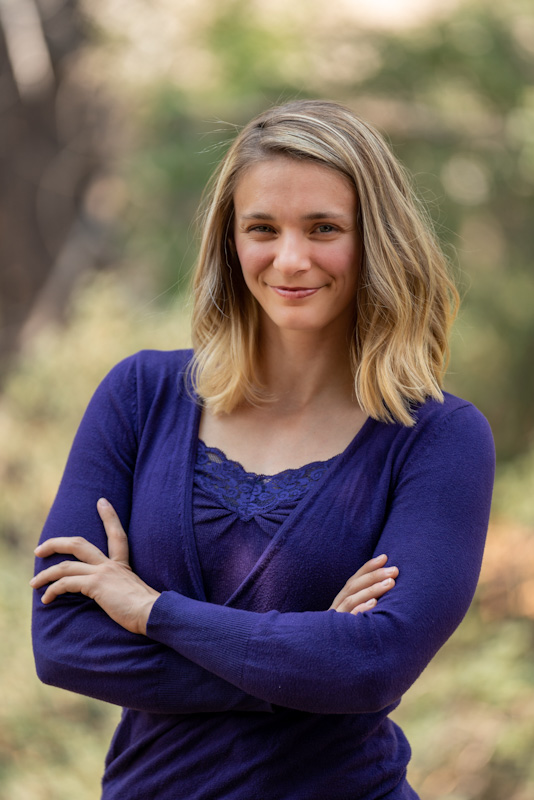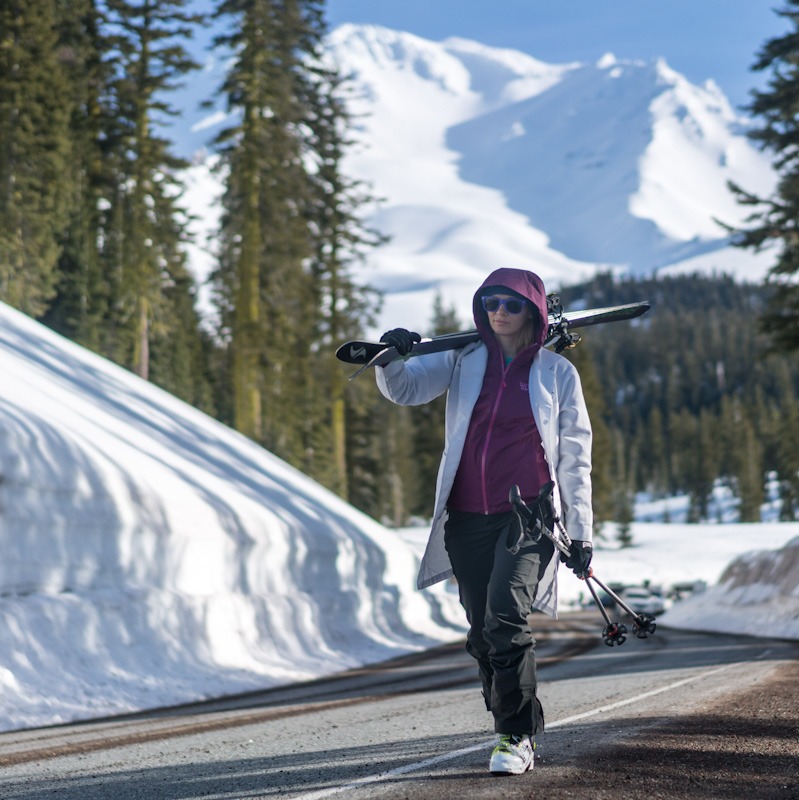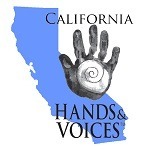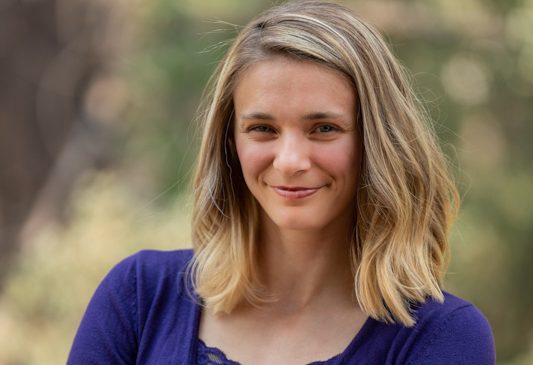I self-identify as….
Deaf
What do you enjoy doing in your free time?
One of my favorite things to do is to explore new places and experience different cultures. I had some great opportunities to travel in the past several years and it has really opened my eyes to how different the human experience can be in other places. Last year, I went to Russia, Cuba, Sierra Leone and lots of Scandinavian places. That being said, if I’m not hiking, you might find me pretending to be a travel agent. It definitely requires a bit of creativity to maintain social distancing with the coronavirus pandemic and to my figure it out with my call schedule, but we make it work with small local excursions!
Please tell us about your earliest years of life related to your hearing, identification etc.
I don’t have a memory of the experience of hearing loss, but from what I’ve been told, I was an “obstinate” child and didn’t follow directions in pre-school. This prompted a hearing evaluation when I was three years old that revealed a progressive sensorineural hearing loss of unknown etiology. I have a profound sensorineural hearing loss, which requires the use of behind-the-ear hearing aids.
 Please share about your relationship with your family and inclusion tips that you have found helpful.
Please share about your relationship with your family and inclusion tips that you have found helpful.
I was fortunate enough to have parents who believed strongly in inclusivity and they helped foster the use of sign language from an early age. Technology has totally evolved from my childhood– I used a TTY machine to call friends or used some intermediary person to listen on the phone for me. Hearing aid quality was not the greatest and I honestly didn’t know how to listen to music using headphones with my hearing aids until I was about 12 years old. I feel closer to family members who do make accommodations for me, such as using sign language or make one-on-one conversation, which is so much easier than group conversations.
Please share a little about your education placement & extracurricular activities as a youth.
My education experience was mainstreamed in a private school, where there were smaller classroom sizes and highly motivated and inclusive teachers. They made sure I was not left out of any group projects or plays, even if my role was minor in them. Many DHH persons need to fight to obtain the appropriate accommodations during grade school and it was certainly a struggle for my school district to provide any sort of reasonable accommodations until I was in about the 4th grade. Up until then, teachers would do everything they could to include me in the lessons. The teachers used an FM system with me as well. I used ASL interpreters from grades 4-10, which was very helpful. My strategy was to sit near the front of the classroom and lean on other students as notetakers to fill in the gaps of what I might have missed.
Thankfully, my parents encouraged me to do many extracurricular activities– I played in many sports, including ski racing, soccer, volleyball and track. They were brave enough to listen to me play clarinet for 6 years.
Please tell us about your relationships with DHH peers as a youth and how they impacted your life.
My hometown is not densely populated to begin with, so other DHH peers were few and far in-between. It was when I participated in Deaf events, such as Deaf Ski Nationals and Deaflympics that I expanded my pool of eccentric, amazing DHH friends. International Deaf events are quite amazing cultural experiences and I highly recommend participation at any age! I have Deaf Japanese, Austrian, German, Czech, Italian and Turkish friends now.
Please share how you/your parents prepared for a new school year and any Tips for Teachers that worked for you.
An “About Me” flyer would have been a great idea! I think mostly we used whatever was available at the time for technology and communicated my needs to the teacher at the beginning of the academic year. Assistive Listening Devices were used in the very early years, followed by ASL interpreters and notetaking. It was when I got to college that I experienced CART for the first time, which was super helpful.
Did you attend your IEP meetings? What memories do you have of your IEP, goals and services?
I mostly recall going to IEP meetings in middle school, though I’m sure my parents were advocating for me from the beginning. It was an odd experience— to have adults talk about me like I wasn’t there. I was intensely shy at the time too. Unfortunately, the IEP was not followed by the school district. Looking back, I wish I was more confident in asking for what I needed. I leaned a lot on other people to speak up for me at the time. The confidence for advocacy later came when services were just freely given when I was college, when I realized that should have been the norm in the first place.
What type of technology, apps or products for Deaf and Hard of Hearing individuals do you use?
This is one of my favorite questions since so many cool things have come out in recent years. I love my BTE hearing aids with bluetooth to my phone. This has completely changed how I talk to people and listen to music. I have an electronic stethoscope called ThinkLabs One that I use with t-coil headphones. When I had a pager in residency, I would attach it to a bed shaker. We also use reusable clear masks at my work, so that if I can’t understand someone in their regular mask, I turn to someone who can repeat it to me with their clear mask on. In medical school, I used CART remotely while in the operating room. There’s a neat video that UC Davis School of Medicine created about it.
Can you tell us a little about your college experience and how did you prepare for college? Any tips?
 My education was always intertwined with athletics, so I applied to colleges with a NCAA Division-1 alpine ski teams. I was offered full-ride scholarships to two of them and accepted the one closer to home, which was University of Nevada, Reno. It was a fairly large campus with a robust Disability Resource Center. I don’t recall meeting very many DHH students there, but I was so busy with being a student athlete that I didn’t have much time for anything else. This was my first exposure to CART and I relied on them for heavy-science based classes and used ASL interpreters for lighter classes (like English 101 or Theatre 101). I was shocked at the ease in which accommodations were provided and I realized that this should have been the norm all along. I also applied for DOR and they covered the costs of books in college. I am very grateful that they helped with tuition costs of medical school as well.
My education was always intertwined with athletics, so I applied to colleges with a NCAA Division-1 alpine ski teams. I was offered full-ride scholarships to two of them and accepted the one closer to home, which was University of Nevada, Reno. It was a fairly large campus with a robust Disability Resource Center. I don’t recall meeting very many DHH students there, but I was so busy with being a student athlete that I didn’t have much time for anything else. This was my first exposure to CART and I relied on them for heavy-science based classes and used ASL interpreters for lighter classes (like English 101 or Theatre 101). I was shocked at the ease in which accommodations were provided and I realized that this should have been the norm all along. I also applied for DOR and they covered the costs of books in college. I am very grateful that they helped with tuition costs of medical school as well.
Please share a little about your career and any tips for someone considering a similar career?
A lot of parents wear multiple hats, such as being a parent, a coach, a teacher, or whatever profession they choose. I was fortunate that my old soccer coach from childhood was a pathologist for his day job. He invited me to shadow him at the local Coroner’s Office. I ended up staying the whole summer while I was in college and it really open up the possibility of medical school for me. We did projects with the California Department of Public Health on suicides and accidental drug overdoses. It was super fascinating and I am grateful for the experience. My advice for preparing for a career in medicine is to seek out mentors (don’t be afraid to ask anyone, most of us are wanting to teach). After that, find ways to enter that workforce, even if it means volunteering in one capacity or another. I’ve had other small jobs, like bookkeeping, greeting card sorting and working in a desert plant research lab. Obviously, my favorite one is the one I’m working today!
Please tell us about your relationships with DHH peers as an adult. When meeting a new person what script have you found helpful when telling them that you are DHH?
Outside the DHH world, hearing people cannot distinguish between Deaf, deaf, hard-of-hearing or use the term “hearing impaired.” My scripting is different for hearing and DHH persons. For the hearing, I tell them that I’m Deaf. It gets the point across so much better than hard-of-hearing because with this term, it seems like they think of their grandpa and don’t see a disability. The word Deaf implies disability and the need for a change of communication behaviors. For the DHH who understand these terms, I am functional in both worlds, so hard-of-hearing is appropriate. As for socializing, I have not done ANY with the coronavirus pandemic outside my immediate family. Most of the socializing is on social media and connecting with DHH friends that way.
What were some of strategies that your parents, teachers or DHH role models taught you that helped you to be a confident independent person?
To be honest, I was incredibly shy as a child and leaned heavily on others to help clue me in socially (such as repeating what others said and helping with phone calls). I probably didn’t really bloom as a confident independent individual until late high school or early college. It does take experience and trial/error to build confidence and I have had my fair share of communication failures. Part of this confidence also comes from having allies and a support network, even as I work from a position of authority in my current job. I think putting kids to the test socially and then providing them emotional support afterwards is incredibly important to their growth as independent individuals.
Most DHH children are born to hearing parents. This question may help parents see the world through their child’s eyes. Please tell us about your day to day life experiences as a DHH adult.
Ah. Genetic background is the first question I’m typically asked by a Deaf person. I am the only one in my family that has a hearing loss before acquisition of language. I was diagnosed around age 3, with an unknown etiology. There are a few people in my family that know sign language and can more effectively communicate with me and in broader situations, such as when I don’t have my hearing aids in, when we’re swimming, if it’s incredibly loud somewhere, or we’re too far away to talk. There are so many advantages to being linguistically inclusive.
Being a deaf person in a hearing world can be exhausting. In a normal situation, lipreading and talking all day uses an incredible amount of concentrative effort. Adding (the appropriately attired) masks to that makes it nearly impossible. Normally, I am catching some consonants while lipreading, hearing some vowels with my hearing aids, then essentially guessing what someone is saying based on inflection and speech patterns. This is why people with an accent present a separate challenge: speech patterns and inflections are new, different and unknown to me. As long as I have context and a predictable set of speech patterns, I think I can get the information right 80-90% of the time. If someone says something out of context, I probably won’t understand it. This is how I might accidentally respond wildly out of left field as well— I wasn’t even having the same conversation as the other person!
There are some things that help with the mental fatigue. I do have a stash of clear masks for my colleagues to use, which makes it easier to lipread. We also have our phones for voice-to-text translations. There’s an amazing medical assistant on my team who learned to sign too.
What accomplishments are you most proud of in your life?
- Circumnavigated the globe westward, starting in San Francisco in 2014
- Successfully visited all 50 US states by 2017
- Had a successful career as an alpine ski racer, winning Gold Medals in Deaflympics in 2003 and 2007
- Became a Deaf physician after graduating UC Davis School of Medicine in 2014
What tips and strategies do you have for communicating with a DHH person?
Just unabashedly announce, “I’m Deaf.” Most people get it and will adapt their behaviors to you. It is helpful to have an ally who can help explain behavioral tips to others. My team tells this to patients or other staff who don’t realize that I am completely unaware of them talking behind me.
Favorite quote? Final comments?
“The mountains are calling and I must go.” – John Muir
“Tough times never last, tough people do.” – Robert Schuller
I hope that someone takes inspiration from my story and use it to propel themselves into what they’ve always dreamed of doing because anything is possible.
Let’s go out with a bang! Complete this sentence to debunk a misconception about Deaf or Hard of Hearing people. “People may be surprised to know that I…..”
deliver babies.

